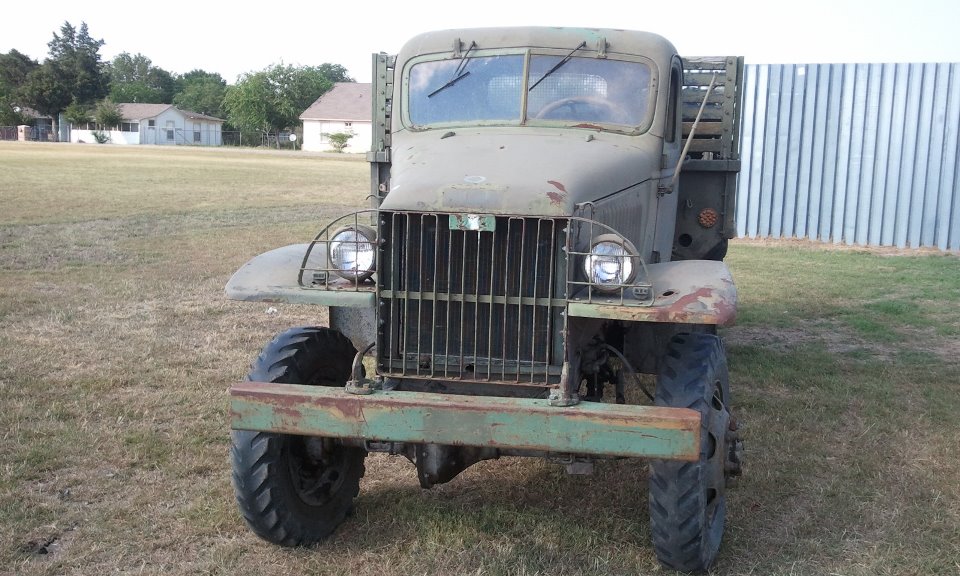1940S Willys Jeep For Sale – In a world that often prioritizes convenience
The notion of a business for sale is one that captures the imagination of many. As more and more people become concerned about the planet’s resources and the impact of consumerism on the environment, the concept of buying used goods has gained traction as a more sustainable alternative to purchasing new products. Unlike mass-produced items that may become outdated or fall apart with minimal use, quality products are designed to endure. Vintage clothing, in particular, has gained a significant following, with people seeking out unique, one-of-a-kind pieces that cannot be found in mainstream stores. When people buy second-hand items, they are extending the life cycle of those goods, which means fewer products end up in the trash. The culture of buying second-hand goods is rapidly shifting in the modern world, particularly among younger generations. The first and most obvious reason is the tangible benefits they offer. These moments remind us that there is more to life than the pursuit of profit, and that not everything can be measured by a price tag. Whether it’s a vintage armchair, a gently used dining table, or a piece of mid-century modern furniture, second-hand furniture can be both functional and stylish. For the seller, the goal is often to maximize the value of the business, while for the buyer, the focus is on ensuring that the investment is sound and that the business can continue to thrive under new ownership. They can assist in determining the right price for the business, marketing it to potential buyers, and managing the negotiation process. In conclusion, quality goods for sale represent the best that craftsmanship, design, and functionality have to offer. They also often help with legal and financial aspects, ensuring that the transaction is completed smoothly and efficiently. Whether it’s the smooth finish of a well-polished wooden table or the satisfying feel of a perfectly balanced knife in your hand, quality goods evoke a sense of pride in their ownership. These items are often crafted with a sense of purpose, where every stitch, joint, and component is carefully considered to create a product that not only functions well but looks beautiful in the process. Some businesses are sold because the owner is ready to retire, while others might be sold due to financial difficulties or changes in the owner’s personal or professional life. The buying and selling of companies, brands, and even entire industries can reshape economies, alter job markets, and redefine how goods and services are delivered. For instance, when someone is job hunting, it can feel like they’re placing themselves on the market, waiting for the right offer. But the financial aspect is only one part of the equation. This sense of connection can also extend to the broader culture of quality goods, where consumers and creators share a commitment to excellence and a desire to preserve the craft and tradition behind these products.

1940S army jeep for sale
Save time & moneyfree — no obligationdeals near youmonthly lease offers

Jeep Wikiwand
Save time & moneyfree — no obligationdeals near youmonthly lease offers

1940 Jeep Willys for sale
Save time & moneyfree — no obligationdeals near youmonthly lease offers

1945 Willys Jeep for sale
Save time & moneyfree — no obligationdeals near youmonthly lease offers

1940S willys jeep for sale
Save time & moneyfree — no obligationdeals near youmonthly lease offers

1940 Jeep willys pickup sale
Save time & moneyfree — no obligationdeals near youmonthly lease offers

1940S willys jeep for sale
Save time & moneyfree — no obligationdeals near youmonthly lease offers

Original 1946 Willys CJ2 Jeep offroad for sale
Save time & moneyfree — no obligationdeals near youmonthly lease offers

Jeep willys 1940
Save time & moneyfree — no obligationdeals near youmonthly lease offers

1940S army jeep for sale
Save time & moneyfree — no obligationdeals near youmonthly lease offers
The perceived high cost of these items has led some to opt for cheaper alternatives. In a world where everything is for sale, it’s easy for the vulnerable and the marginalized to be taken advantage of. Many people continue to resist the notion that everything has a price, and they fight to reclaim what is meaningful and valuable in life. Their inherent value comes not only from their physical characteristics but also from the values of durability and sustainability. The rise of minimalist living, which emphasizes owning fewer, more meaningful possessions, has played a role in this shift. From the most trivial items in a dollar store to the most precious works of art in a museum, everything can be assigned a price. Another aspect that contributes to the appeal of quality goods for sale is the level of detail and attention given to the design. This can bring about feelings of uncertainty, as there’s no guarantee that the right buyer or partner will come along. Are there things that should be kept beyond the realm of trade? Or has the marketplace — with its insatiable demand and promise of exchange — seeped into every facet of our being?
If everything is for sale, then the concept of value itself becomes fluid, subjective, and often manipulated. Whether it’s a rare collectible, a discontinued item, or a vintage piece of clothing, online platforms offer a global marketplace where buyers and sellers can connect over products that may not be easily found elsewhere. The role of business brokers and intermediaries has become increasingly important in today’s business-for-sale market. A piece of furniture, for instance, may hold sentimental value simply because it’s been in the family for generations. Unlike mass-produced items that may become outdated or fall apart with minimal use, quality products are designed to endure. Many people find that buying second-hand furniture allows them to acquire high-quality pieces that are built to last, often with a level of craftsmanship that is hard to find in mass-produced furniture. The concept of quality, however, is not a one-size-fits-all. Our emotional lives, our personal narratives, and even our deepest fears have been monetized. For people looking to furnish their homes, build a wardrobe, or invest in certain hobbies or collections, second-hand goods often provide a way to access items they might otherwise be unable to afford. Online platforms also offer the convenience of searching for specific items, whether it’s a rare collector’s item, a particular brand of clothing, or a piece of furniture that fits a specific design style. The business-for-sale market continues to evolve, influenced by economic trends, technological advancements, and shifts in consumer behavior, but one thing remains clear: buying and selling businesses will always be a fundamental part of the global economy. There are communities that exist outside the realm of traditional commerce, where sharing, collaboration, and mutual support take precedence over profit.
There is also a growing trend of online platforms that facilitate the buying and selling of businesses. In this world, emotions can feel like products, available to be consumed at will and disposed of when they no longer serve a purpose. Thrifted clothing, vintage furniture, and pre-owned electronics are often seen as more authentic and unique than brand-new, mass-produced items. The decision to sell an heirloom piece of furniture, for example, can be emotionally complex, as it involves a shift in one’s connection to the past. In conclusion, the market for second-hand goods for sale is an ever-growing and dynamic space that offers numerous benefits to both buyers and sellers. What will come next? What new opportunities will arise from this decision? When an item is placed “for sale,” it’s not just the object that’s changing hands; it’s often a reflection of the personal changes happening within the seller. When we begin to view everything through the lens of commerce, it’s easy to lose sight of the things that make life worth living — the moments that aren’t for sale, the experiences that can’t be bought. They are investments, not just purchases, and their value is often felt long after the original transaction has ended. Whether it’s a car, a house, or a simple piece of furniture, there’s a process that unfolds. The artist who created it may have one understanding of its worth, while a collector may see it as a valuable investment, and a casual admirer might simply appreciate its beauty without considering its monetary value. By purchasing second-hand goods, consumers help keep products circulating in the economy, giving them new life and purpose. In conclusion, the sale of a business is a complex process that involves numerous steps, from identifying the right buyer or seller to completing due diligence and negotiating the terms of the transaction. But the price of quality goods can often be a barrier for many. The democratization of commerce has opened up opportunities for millions of people, giving them the chance to pursue their dreams and create their own paths to success. Online platforms also give buyers and sellers the chance to evaluate one another through reviews and ratings, adding an extra layer of trust and security to the transaction. Thrift stores often carry a wide variety of goods, from clothing and accessories to furniture, books, and electronics, and each item comes with its own story. In a sense, the very nature of human existence can feel like a transaction. It doesn’t fall apart after a few uses, nor does it need to be replaced after a season. The business-for-sale market continues to evolve, influenced by economic trends, technological advancements, and shifts in consumer behavior, but one thing remains clear: buying and selling businesses will always be a fundamental part of the global economy. While some people may be hesitant to purchase pre-owned electronics due to concerns about quality or reliability, the second-hand market for electronics has become increasingly trustworthy.